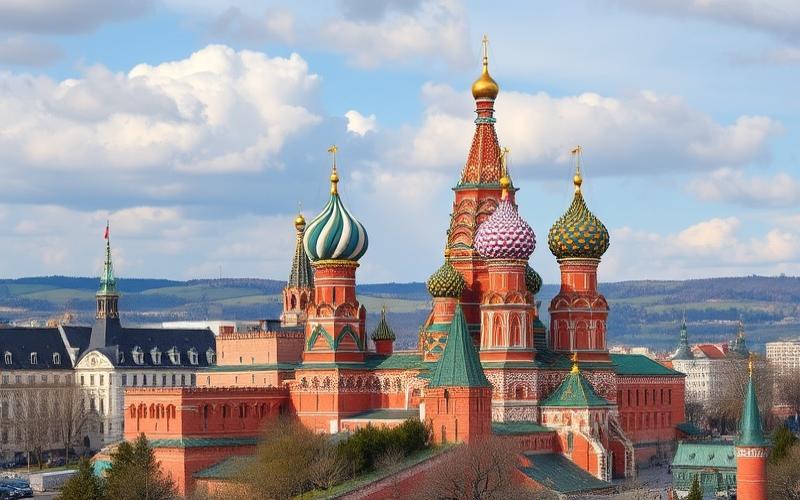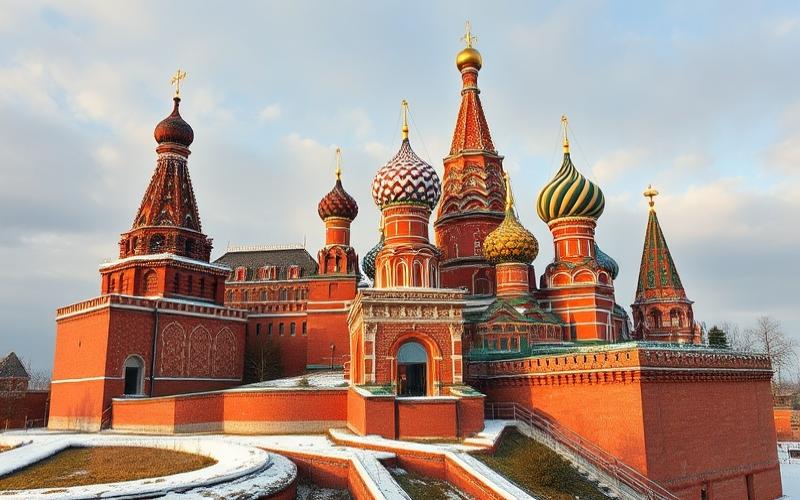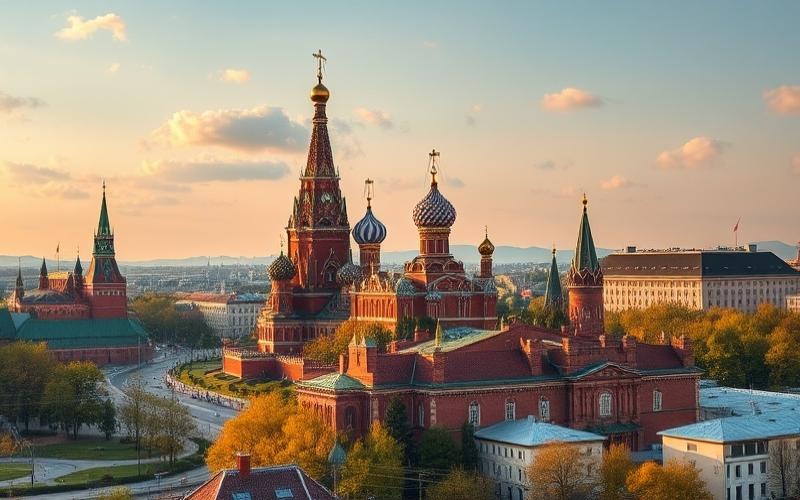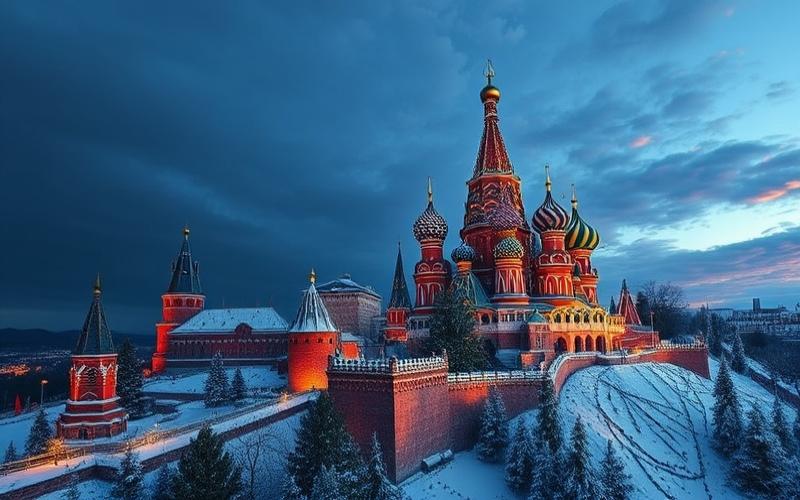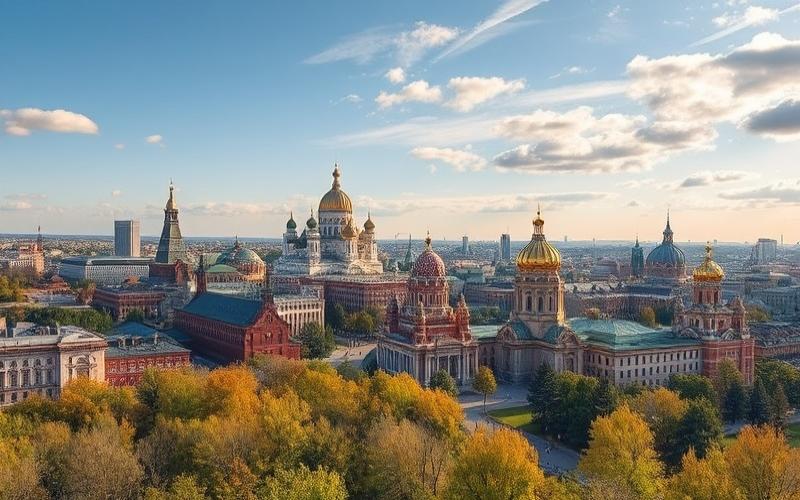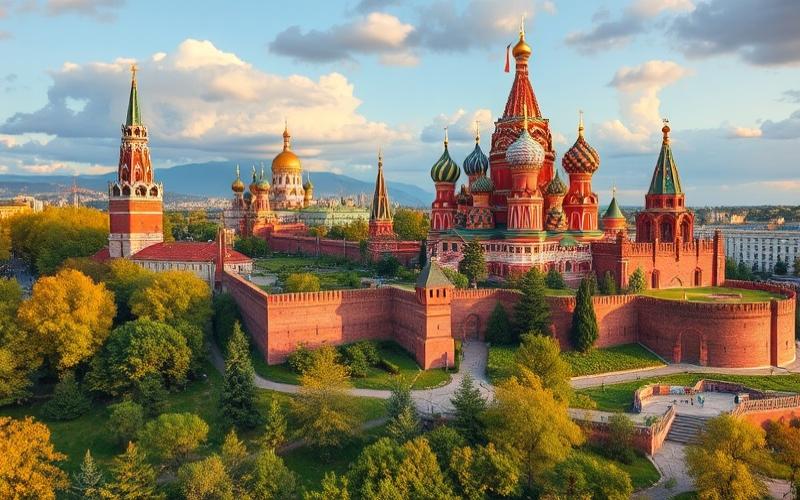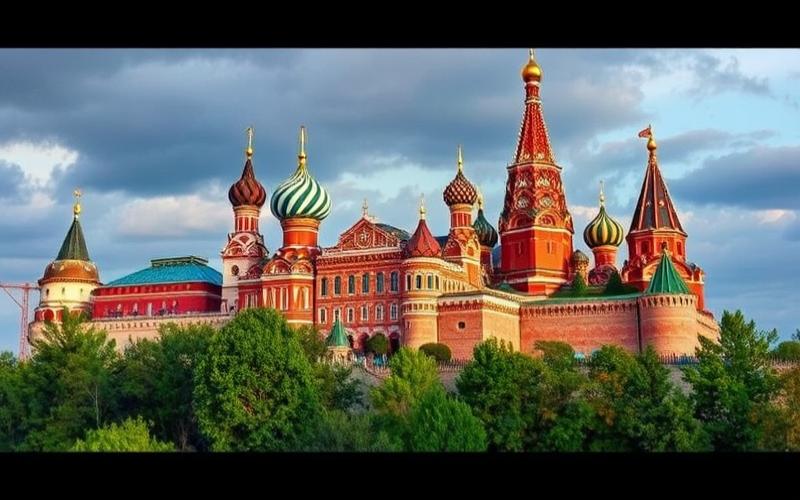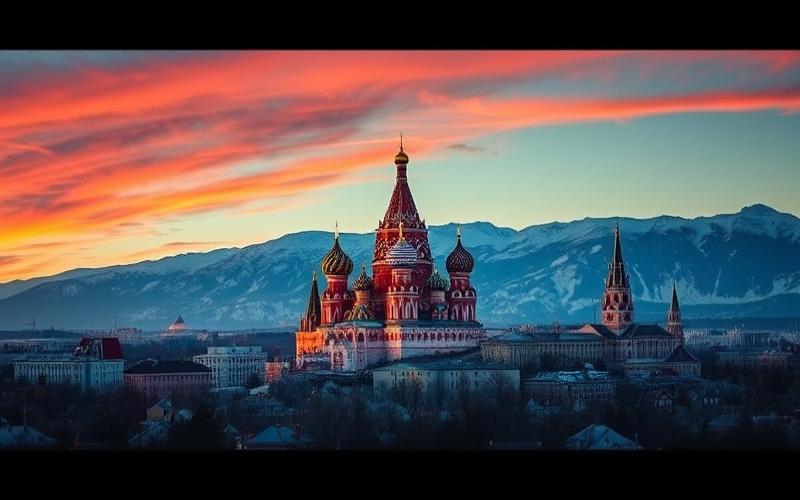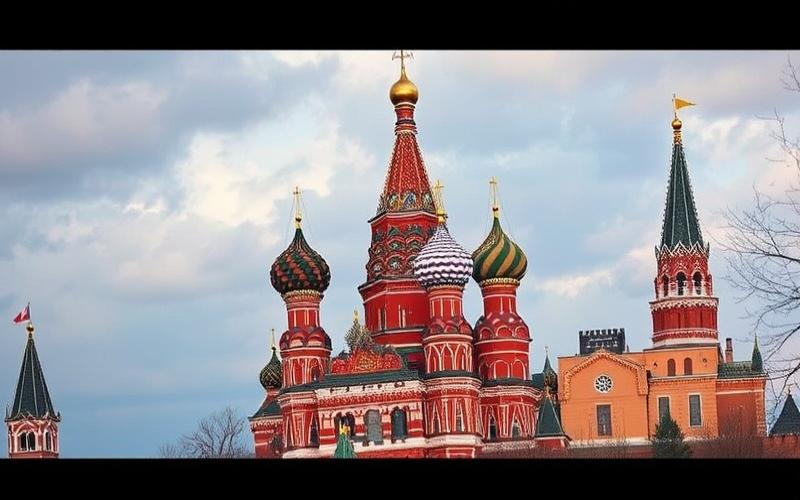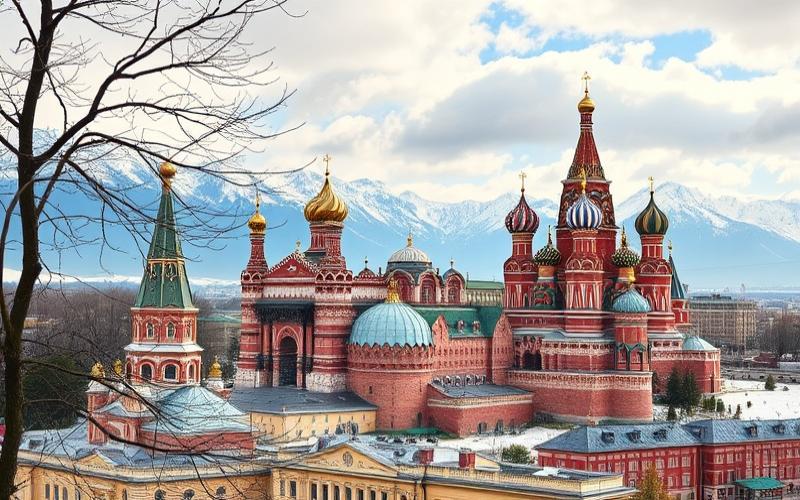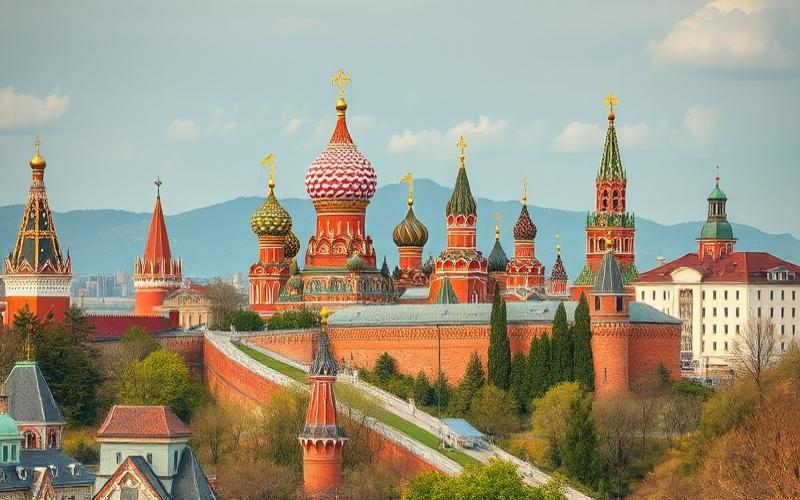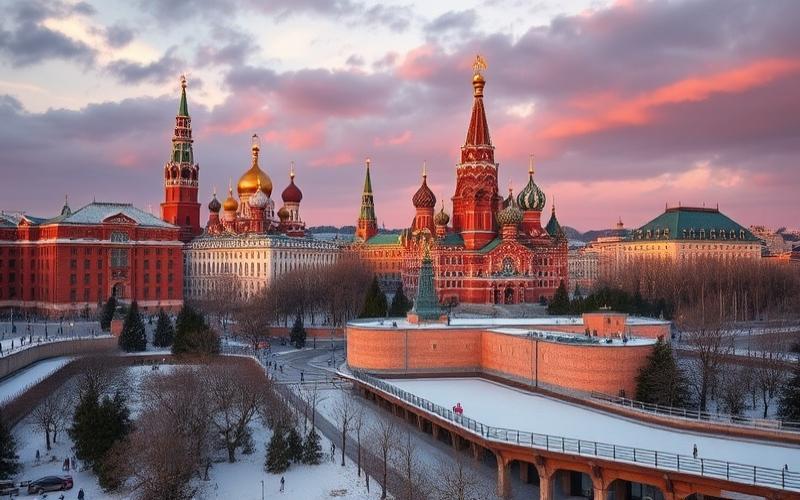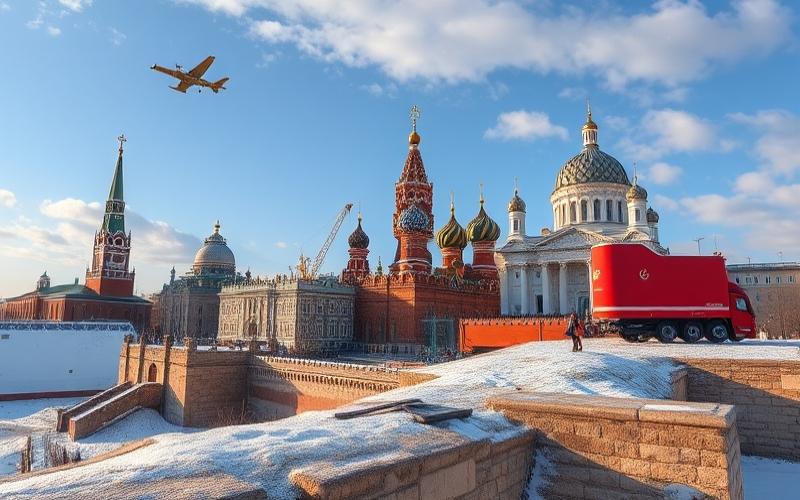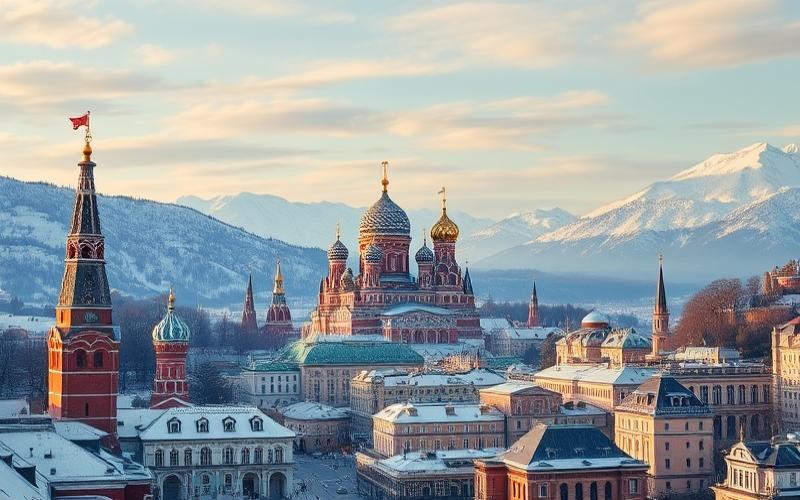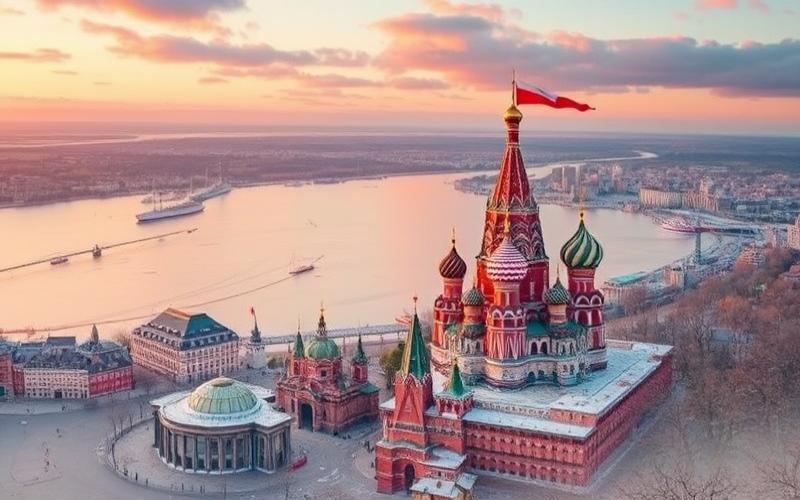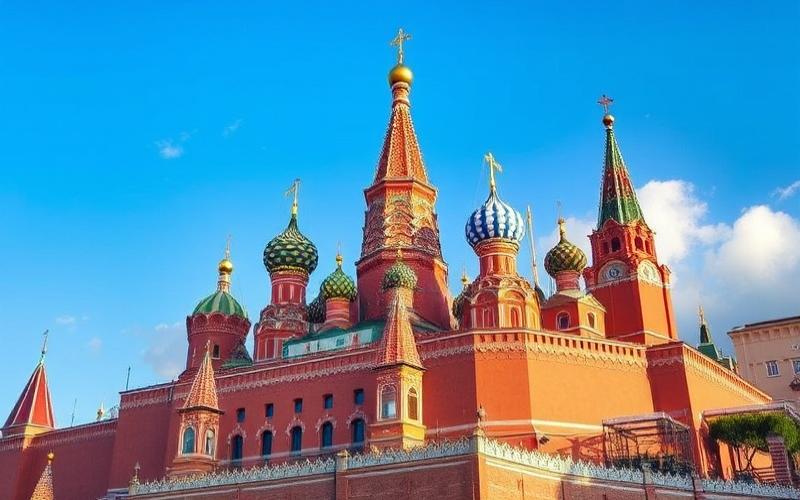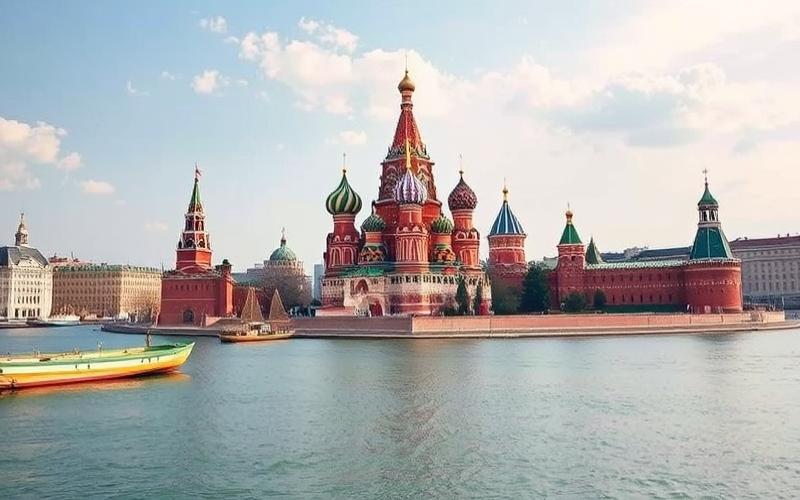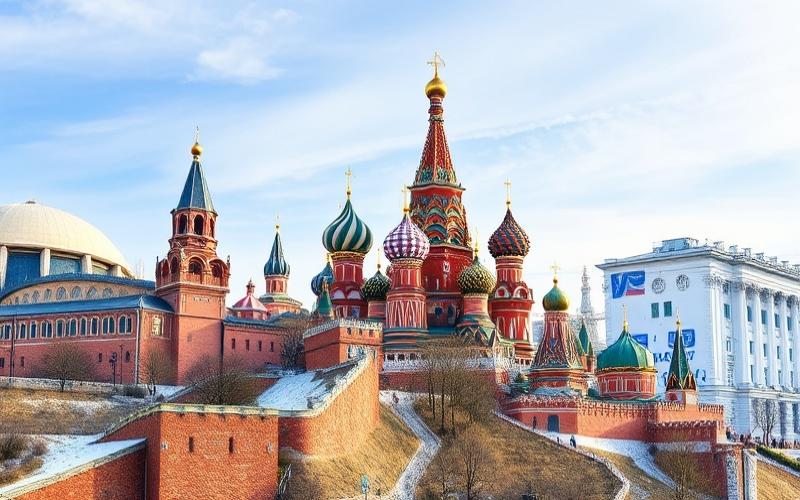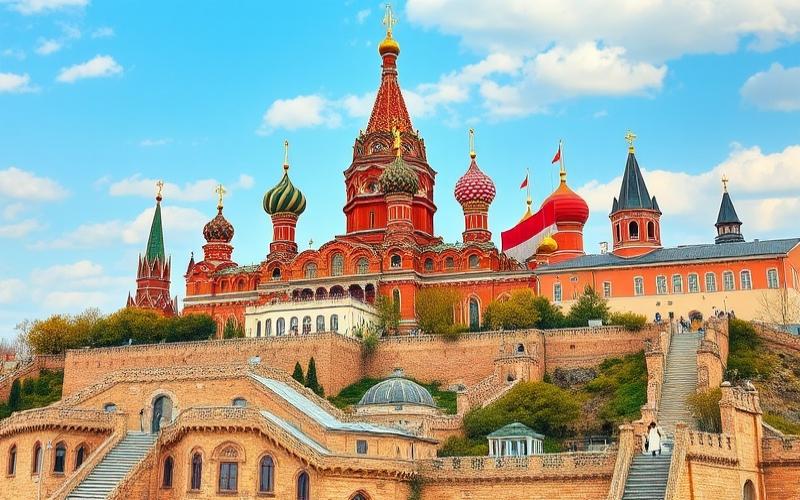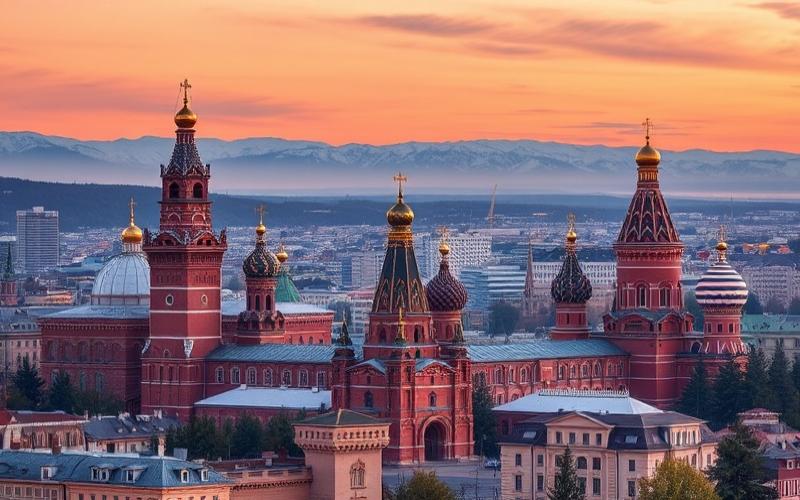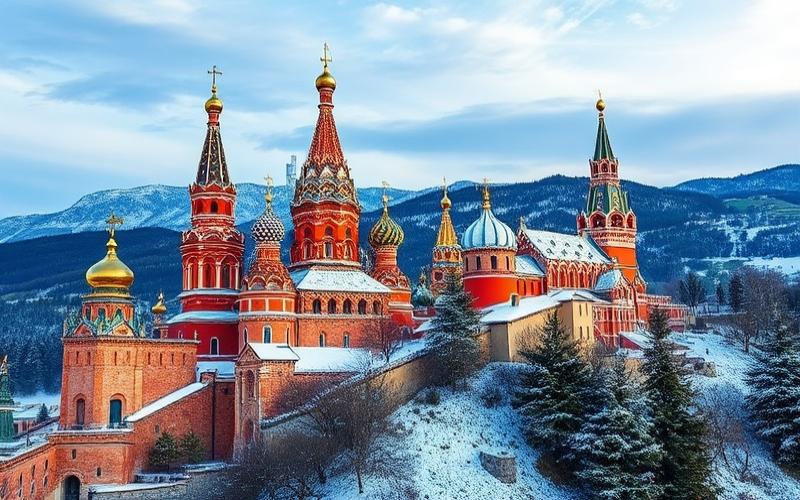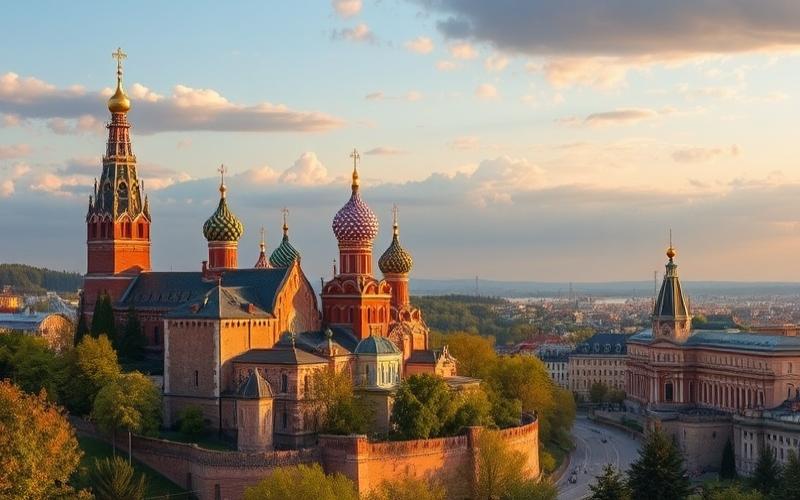
 Published on and written by Cyril Jarnias
Published on and written by Cyril Jarnias
Planning a wedding is always an adventure, and when this celebration of love is to take place in Russia, the journey becomes both fascinating and complex. Couples must prepare to navigate a maze of often unfamiliar administrative formalities, requiring careful attention to the smallest details to ensure the success of this memorable day.
From preparing official documents to understanding cultural specifics, each step requires rigorous organization and precise knowledge of the procedures to undertake. This article guides you through this process, revealing the essential keys to making your wedding in Russia as smooth as possible, while respecting legal requirements and preserving the magic of the event.
Administrative Procedures for Getting Married in Russia
Required Documents for Getting Married in Russia:
- Valid passport (notarized copy recommended)
- Full birth certificate (less than 3 months old)
- Certificate of marriageability (issued by the consulate of the home country)
- Certificate of single status or non-remarriage attestation
- Apostilled divorce decree or death certificate of previous spouse if applicable
- Valid visa for Russia
Important Notes:
All foreign documents must be apostilled (unless exceptions under bilateral agreements apply) and translated into Russian by a certified translator.
Scans or digital copies are not accepted; only originals or certified copies are valid.
| Document | Certified Translation Required | Apostille/Legalization |
|---|---|---|
| Passport | Yes | No |
| Birth Certificate | Yes | Yes |
| Certificate of Marriageability | Yes | Yes |
| Certificate of Single Status | Yes | Yes |
| Divorce Decree/Death Certificate | Yes | Yes |
Administrative Procedures:
- Gather all required documents, apostille and translate those not in Russian.
- Schedule an appointment with the Russian civil registry office (ZAGS) at the chosen wedding location.
- Submit the complete file to ZAGS. The marriage application form (Form No. 8) must be completed and signed by both future spouses.
- Publish the banns (legal waiting period of 1 month generally observed between file submission and marriage ceremony).
- After the banns are published and the legal waiting period expires, the civil marriage is performed at ZAGS.
- For French nationals, request transcription of the marriage certificate with the French General Consulate in Moscow for recognition in France.
Potential Fees:
- File submission and ceremony fees at ZAGS: variable rate by region, generally modest.
- Certified translation and apostille fees.
- Possible legalization fees with the Russian Ministry of Foreign Affairs.
Precautions for Foreign Nationals:
- Verify marriage recognition in the home country.
- Account for cultural differences (traditions, celebration proceedings, formalities).
- Ensure the Russian civil marriage is accepted by the home country’s administration to avoid future difficulties (children, inheritance, etc.).
Organizations to Consult for Information or Assistance:
- Embassy or consulate of the home country in Russia (for issuing certificates, legal advice, etc.)
- Local Russian civil registry office (ZAGS)
- Russian Ministry of Foreign Affairs (for legalization)
- Certified translation services
- Specialized agencies or lawyers in private international law
Be sure to anticipate procedures and regularly check official requirements, which may change according to current legislation.
Good to Know:
Ensure you have a certified translation of your documents if they are not in Russian and budget for ZAGS registration fees; consult your embassy for any questions about local regulations and cultural differences.
Documents Required for Marriage in Russia
Required Documents for Getting Married in Russia
For Russian Nationals:
- Internal passport and international passport
- To be obtained from competent authorities (residence registration office).
- Validity: permanent as long as the passport is valid.
- Original birth certificate
- Issued by ZAGS (Civil Registry Office) or regional archives.
- Validity: permanent, but the original must be presented.
- Divorce certificate or death certificate of previous spouse (if applicable)
- Issued by ZAGS or court that pronounced the divorce/death.
- Validity: permanent, provided it is authentic and up-to-date.
- Official marriage application form (Form No. 8)
- To be completed at ZAGS when submitting the file.
For Foreigners:
- Valid passport (+ notarized copy)
- Obtained from authorities in the home country. Notarized copy made by a local or consular notary.
- Validity: according to official passport expiration; the copy should generally be less than three months old at the time of submission.
- Certificate attesting no legal impediment to marriage
(Certificate of single status, civil status certificate, certificate of marriageability)
- Issued by town hall/embassy/consulate/prefecture depending on home country.
- Must be apostilled if issued outside Russia, or legalized if your country is not a signatory to the Apostille Convention.
- Typical validity period: three months from the date of issue for most Russian jurisdictions.
- Official proof regarding any previous terminated marriage (final divorce decree / death certificate of ex-spouse)
- Provided by competent authorities in the relevant country; apostilled/legalized if necessary
- Validity period same as main certificate
- Signed official application (“Заявление о заключении брака” – Form No. 8)
- To be completed on-site at ZAGS, printed double-sided
- Certified translation recommended if non-Russian
- Signature required in front of an officer
Additional Documents Sometimes Required:
Recent prenuptial medical certificates
Tips for Expatriates Getting Married in Russia
Cultural and Legal Differences Encountered by Expatriates During a Wedding in Russia:
- Strict legal framework: Marriage in Russia must be performed either at ZAGS (Russian civil registry office) or, for some nationals, at their home country’s consulate. Same-sex marriages are not recognized in Russia.
- Administrative procedures: Many documents are required (passport, certificate of single status, birth certificate, etc.), all needing translation into Russian by a certified translator and legalization (apostille). Legal deadlines require file submission at least one month in advance and no earlier than one year before the ceremony.
- International recognition: For a Russian marriage to have legal value in the foreign spouse’s home country, it often must be transcribed into the consular or civil registry records of the concerned country.
Practical Tips for Organizing a Russian-International Wedding Ceremony:
- Arrange for legal assistance to ensure the validity of procedures.
- Submit the complete file within required deadlines (one to twelve months before the planned date).
- Verify the need for an apostille on foreign documents.
- Organize the civil ceremony at ZAGS or the competent consulate.
Choosing a Venue and Vendors Compatible with Russian Traditions:
- Prefer reception halls or restaurants accustomed to hosting international weddings and familiar with Russian specifics (abundant banquets, space for dances and traditional games).
- Choose vendors (caterers, entertainers, photographers) with experience in Russian-foreign weddings.
- Plan for a master of ceremonies (tamada) to orchestrate customs and animate the party according to Russian traditions.
Specific Rites and Customs of Russian Weddings:
- Mandatory civil ceremony at ZAGS.
- Bread and salt to welcome the newlyweds.
- Breaking the glass for good luck.
- Games and entertainment led by the tamada.
- Speeches, vodka toasts, dances, and very festive banquets.
| Rite/Custom | Description |
|---|---|
| Bread and Salt | The newlyweds are welcomed by their parents with bread and salt. |
| Tamada | Master of ceremonies responsible for entertainment and traditional games. |
| Breaking the Glass | Symbol of happiness and luck for the new spouses. |
| Bride’s Ransom | Games where the groom symbolically “buys” his future wife. |
| Dances and Toasts | Numerous vodka toasts, folk dances, and friendly entertainment. |
- Hire a professional translator for all official documents.
- Ensure translations are certified by a Russian notary.
- Arrange for an interpreter for the ceremony and reception to facilitate communication between Russian-speaking and non-Russian-speaking guests.
- Verify the legal recognition of translated documents in both countries.
Managing Family and Traditional Expectations from Both Sides:
- Organize a meeting (in-person or via video conference) between families to discuss expectations and each other’s traditions.
- Clarify important points: ceremony proceedings, rites to include or not, menu choices, traditional attire, etc.
- Plan moments of exchange and explanation during the ceremony so each family understands the other’s traditions.
- Be prepared to compromise to integrate essential elements from both cultures, while respecting the Russian legal framework.
Summary of Practical Recommendations:
- Anticipate administrative procedures and legal document translation.
- Choose experienced vendors in international weddings.
- Integrate major Russian rites while explaining their meaning to foreign guests.
- Arrange for linguistic assistance (translator, interpreter) for the ceremony and party.
- Communicate in advance with families to manage expectations and avoid misunderstandings.
Key Takeaway
Organizing a Russian-international wedding requires anticipation, administrative rigor, cultural openness, and constant dialogue between both families.
Good to Know:
To avoid misunderstandings, it is important to legally translate all necessary documents and choose wedding vendors who understand both Russian and international traditions for a harmonious ceremony.
Disclaimer: The information provided on this website is for informational purposes only and does not constitute financial, legal, or professional advice. We encourage you to consult qualified experts before making any investment, real estate, or expatriation decisions. Although we strive to maintain up-to-date and accurate information, we do not guarantee the completeness, accuracy, or timeliness of the proposed content. As investment and expatriation involve risks, we disclaim any liability for potential losses or damages arising from the use of this site. Your use of this site confirms your acceptance of these terms and your understanding of the associated risks.

